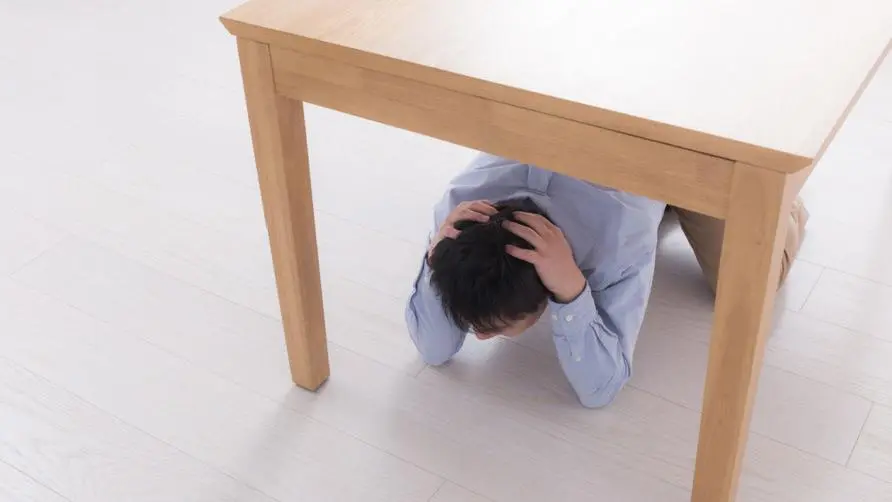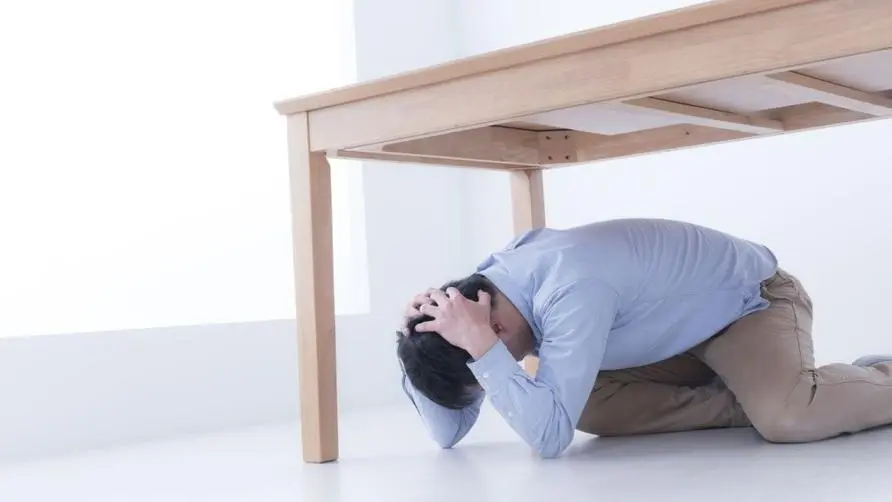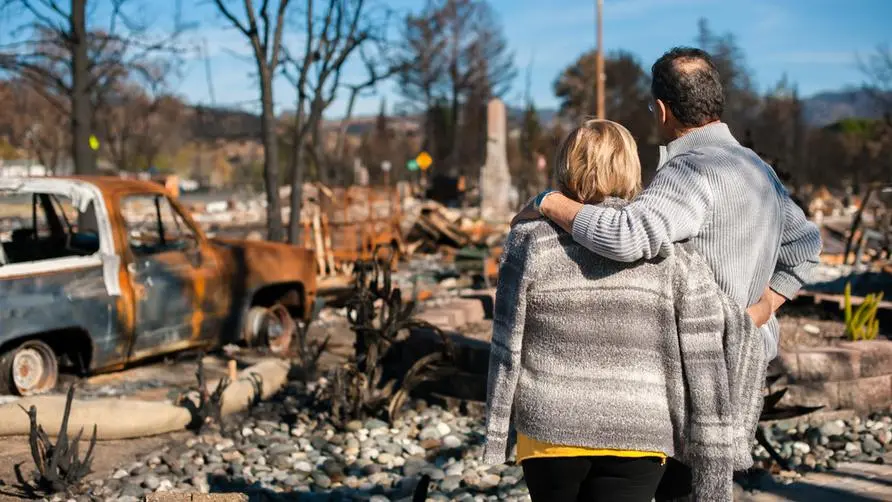It is wrong to "run away immediately" in case of a strong earthquake! Experts teach "three correct steps" to save your life: Stop being superstitious about the Golden Triangle

It is wrong to “run away immediately” in case of a strong earthquake! Experts teach “three correct steps” to save your life
The Noto Peninsula, located in Ishikawa Prefecture, Japan, was shocked to hear that a strong earthquake with a magnitude of 7.6 occurred on January 1. As of the evening of the 3rd, it was reported that at least 78 people had been killed. Taiwan is located at the junction of tectonic plates, and earthquakes occur more frequently. Many people are worried that if a natural disaster strikes, they will not be able to respond promptly and correctly. For this reason, the U.S. Centers for Disease Control and Prevention (CDC) published guidelines stating that “three major actions” should be taken immediately when an earthquake occurs.
The U.S. CDC stated that mastering the “DCH rule” during an earthquake is considered the most reliable and simple method. The three major actions represented by the DCH law are as follows:
Drop: lie down/ly down: Get down on your hands and knees to avoid being knocked down by the earthquake, and use your arms to protect yourself from falling objects that could hit your head. This position protects you from falling and allows your body to move freely if necessary.
Cover: Take cover under a table or shelter with a sturdy structure. If there is no obvious cover nearby, try to get close to a pillar, low furniture or a corner near a wall; keep covering your head and neck with your arms.
Hold on Hold on/steady: Hold and hold onto the cover until the shaking stops. Remember to stay away from objects that may fall, such as high-placed decorations, chandeliers or furniture such as bookcases, shoe cabinets, etc.
What should you do if you encounter an earthquake while sleeping or going to the toilet? Please do this in “these 4 places” at home to save your life
The US CDC warns that when severe shaking occurs, do not move to other spaces or outdoor spaces. Staying in place can reduce the risk of injury. Therefore, the popular belief in the past that people could save their lives through the “golden triangle” during earthquakes is not correct. Finding a bunker is the safest way. In addition, in order to reduce the risk of injury from falling objects, if you are in different areas of your home, you need to pay attention to the following instructions:
First, if you are in a living room or study room, the first priority is to “stay away from falling objects.” Within a few seconds before the vibration intensifies, quickly move away from glass, hanging objects, bookcases, china cabinets or large furniture; and pay attention Dropped objects include bricks, lamps, wall hangings, shelves, and cabinets with revolving doors.
Furthermore, if an earthquake occurs while you are using the toilet or taking a bath, please stay in the same place (such as a bathtub or toilet) and do not rush out to avoid slipping on the floor and causing falls. Try to use hard objects around you to protect your head, neck and face to protect yourself from falling debris and broken glass. Third, if you are in the kitchen, you should quickly turn off the gas stove or induction cooker and hide if there is any sign of shaking. Fourth, if you are lying in bed, be sure to protect your head with a pillow and stay put, as broken glass on the floor can cause injury if you walk or roll on it.
Finally, avoid standing in doorways or escape hatches during an earthquake. Modern house doorways are no stronger than any other part of the house, and doorways do not protect themselves from falling objects. Most earthquake-related injuries and deaths are caused by falling objects or being pinned to the ground by large objects.
How to react in high-rise buildings or near the coast during an earthquake? Do “this thing” well to avoid stampedes.
Different regions have different emergency measures when an earthquake occurs. The U.S. CDC lists six common scenarios, and people should take contingency measures according to the differences in the scenarios:
1. High-rise buildings:
Stay away from windows and exterior walls.
Stay in the building.
Do not use elevators, as power outages may occur during an earthquake and sprinkler systems may activate.
If you are trapped by a falling object, remain calm and try to knock on a hard or metal part of the building to attract the attention of the search and rescue team and increase the chance of rescue.
2. Crowded places:
When an earthquake occurs, you should lie down, take cover, and hold still, which is to abide by the “DCH Law.”
Don’t rush to the door, as other people may have the same idea, which may lead to pushing and stamping.
Stay away from displays containing items that could fall.
If conditions warrant, seek cover and hold on to protect your head from falling debris and glass.
3. Outdoor places:
Stay away from buildings, power lines, ditches, or natural gas lines, and hazards from falling debris are just outside doorways and near building exterior walls.
Go to an open area away from trees, power poles and buildings. Once you enter an open space, you should immediately squat down and stay still until the shaking stops.
The area near the exterior walls of buildings is the most dangerous place because windows and exterior walls are often the first to collapse, so stay away during an earthquake.
4. Driving vehicles:
Gradually slow down and stop.
Move the car to the shoulder of the road and away from dangerous places such as telephone poles, wires and overpasses.
Remain in the vehicle and apply the handbrake. The car may shake violently, but stay still and avoid random movements until the shaking stops.
Turn on the radio to listen to emergency broadcasts.
If your car is damaged and cannot start, you should stay in the car until rescuers arrive.
When you can drive again, be aware of hazards caused by earthquakes such as cracked sidewalks, downed utility poles and wires, rising water levels, collapsed bridges, and more.
5. Stadium or theater:
You should remain seated and protect your head with arms or a cover.
Do not leave until the shaking is over.
Carefully step outside after the shaking stops, and be aware of any objects that may have fallen during aftershocks.
6. Coast:
When an earthquake occurs, you should lie down, take cover, and hold still, which is to abide by the “DCH Law.”
If the violent shaking lasts for more than 20 seconds, please evacuate to higher ground immediately, as the earthquake may trigger a tsunami.
Immediately move at least 3 kilometers inland or to an altitude of at least 30 meters above sea level.
Avoid driving or moving through vehicles to avoid falling objects or other hazards.
In addition, if you encounter a situation where you cannot squat down or fall to the ground immediately, you should remain seated to avoid being knocked down. If you are sitting in a wheelchair, you should lock the wheels and remove all items that are not securely fastened to the wheelchair. Use books, pillows or arms to protect your head and body during an earthquake to prevent injuries from falls or falling objects.
If you are unable to lie down during an earthquake, seek shelter under a sturdy table or desk and away from exterior walls, windows, fireplaces, and hanging objects. If you are unable to stand up from a bed or chair, cover your head with a blanket or pillow to protect yourself from falling objects. Those who are outdoors should move to an open area away from trees, power poles and buildings and avoid moving until the earthquake is over.
Source:
Stay Safe During an Earthquake - Centers for Disease Control and Prevention
Extended reading:




